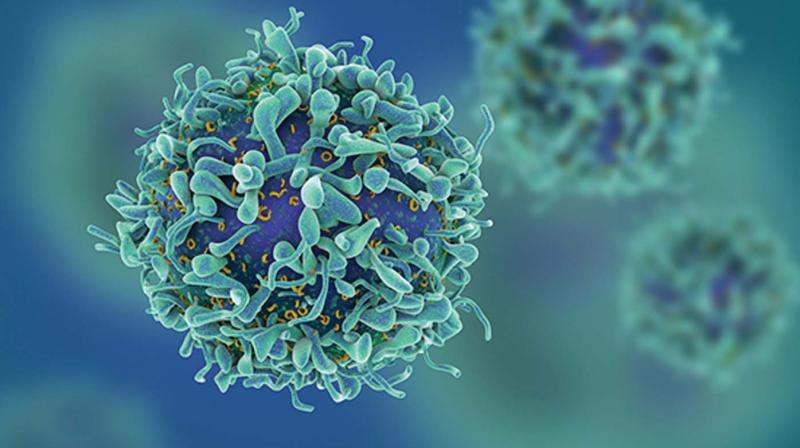Safer cancer treatment soon
The research has been funded by a grant of Department of Biotechnology, Government of India.

Kochi: Scientists at the Centre for Nanosciences and Molecular Medicine at the Amrita Institute of Medical Sciences here on Tuesday claimed to have found a safer way to kill cancer cells by using a biodegradable material found naturally in bones. They claim that nanoparticles of calcium phosphate can be used as a fully degradable radio frequency (RF) agent which would be a big leap in the safe treatment of cancer using heat generated by radio waves. They are also imageable by MRI and CT scans. Most RF agents currently available are non-biodegradable and scientists worldwide have been struggling to discover a biodegradable RF agent.
The research has been funded by a grant of Department of Biotechnology, Government of India. “The development of calcium phosphate nanoparticles with imageable properties for drug delivery is a major innovation in the quest to develop biodegradable contrast agents for imaging (diagnostic) purposes. Calcium phosphate is naturally found in human bones and is non-toxic and fully biodegradable. Now that its nanoparticles have been made imageable by MRI and CT scans, their accumulation in tumours can be verified and the MR contrast used for image-guided surgical treatment of cancer,” said Dr. Shanti Nair, Director, Centre for Nanosciences and Molecular Medicine, Amrita Institute of Medical Sciences, Kochi.
“Currently, the most common treatment for cancer involves radiation and use of gamma rays to kill cancer cells. However, this inflicts collateral damage – healthy cells also get destroyed along with cancer cells. Radiation treatment with cyber-knife is much more precise, but very expensive. In this situation, the most easily accessible and cheapest cancer treatment available today uses radio frequency (RF) microwaves. But for this method to work, the RF agent should be non-toxic and preferentially accumulated in the tumour. This is where the development of calcium phosphate nanoparticles as a biodegradable RF agent becomes significant,” Dr. Shanti Nair said.
"The main advantage of calcium phosphate is that our body does not treat it as foreign material, leading to minimum toxicity and immune rejection compared to other engineered nanoparticles which are non-biodegradable. We have made this biomineral imageable using MRI and CT. It can be guided precisely to cancer tumours, which will enable their treatment under image guidance, using radio waves to heat up and destroy the cancerous cells. We are now conducting large animal studies, after which clinical trials will follow," said Dr. Manzoor Koyakutty, Professor, Centre for Nanosciences and Molecular Medicine, Amrita, Kochi.

